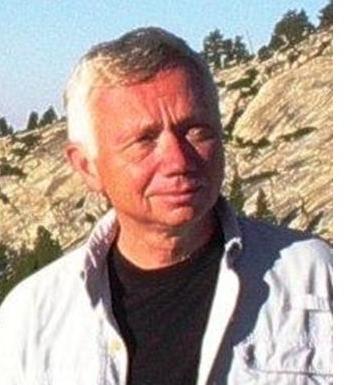A mother crosses in the middle of the street carrying her baby, with her four year old separate and adrift. The four year old is hit, and, horrifically, killed by a drunk driver. Raquel Nelson is the Atlanta-area mom, who was convicted of vehicular homicide after her 4-year-old son was struck and killed by a hit-and-run driver. The driver, who was under the influence of alcohol and painkillers, also had a previous record of hit-and-run. And now, the mother is threatened with years in prison (though the charges have been reduced), while the drunk driver is sentenced to six months. We ask how do we hold the mother accountable? What is the proper punishment for the driver? But no one is asking what can be done so that this doesn't keep happening. How can we claim it's moral to blame the mother when we don't also take responsibility for fixing the problem?
That is our typical response to these kinds of tragedies. We call it an accident or we blame the individual. It's common for people to use the word accident for crashes, yet, it's an unfortunate -- and inadequate -- habit. The word implies that injuries are simply happenstance -- rare and without pattern. It blinds us to their frequency and preventability. Those of us who work to prevent injuries know that injuries are not accidents, they are predictable and preventable.
We shouldn't design highways where pedestrians who need to cross have no safe places to do so -- no lights and no cross walks within reasonable distances, and with cars going too fast. Streets where cars are all that matter and people (especially ones who are poor) don't matter, and for sure not people who are black, exhausted, or four years old. Instead of wasting our time debating who should be punished and how much, we need to invest our traffic safety funds in efforts that keep our children and families safe.
If we spent our money on smart transportation planning, that prioritizes pedestrians and bicyclists as well as cars, we could meet all these needs. In New York, a particular intersection on Queen's Boulevard had become the city's deadliest, and most of the victims there were senior citizens. If you watched people crossing, it was apparent that many were unable to make it across the street before the light changed. Residences were on one side and the commercial areas on the other side. "One only needs to see the roadway itself to realize something is terribly wrong here. Disaster is waiting to happen," said Richard Retting, the transportation safety manager who tried to fix it.
So Retting met with traffic officials, seniors, and community leaders -- they lengthened the time for the walk signal; they also made the countdown box more visible and roadway markings clearer. They worked with law enforcement to reduce speeding, and held safety presentations at senior centers. None of these changes was hard to figure out; it was simply a question of attention and political will. After the project was completed, the number of annual pedestrian deaths, predictably, plunged.
It's a common sense investment. Of course, it cost some money, but far, far less than the costs of the injuries and deaths, and we spend money on our roads every year. It's a question of whether our priorities are saving lives.
At this moment, members of Congress are drafting and heatedly debating the need to include dedicated funding for bicycle and pedestrian infrastructure within the Transportation Authorization Bill, a long-term bill that provides states and localities with funding to improve their transportation systems. Without increased public support, the next version of this critical bill will eliminate dedicated funding for safe and active transportation options and limit our ability to improve traffic safety across the nation.
There is no grief greater than that for a lost child, and it is certain that Raquel Nelson will spend a lifetime wondering what she could have done differently. It is too late for her to change what happened, but it is not too late for the rest of us to make sure that we stop it from happening again. Elenor Roosevelt once asked, "When will our consciences grow so tender that we will act to prevent human misery rather than avenge it?" Let's hope that this tragedy will provoke both tenderness and action.
 This piece was co-authored with Richard J Jackson, M.D., M.P.H. Dr. Jackson is the Chair of Environmental Health Sciences at the UCLA School of Public Health. He served 15 years at the CDC where he established the National Asthma Epidemiology and Control Program. Over the past decade, much of Dr. Jackson's work has focused on how the 'built environment,' including architecture and urban planning, affects health.
This piece was co-authored with Richard J Jackson, M.D., M.P.H. Dr. Jackson is the Chair of Environmental Health Sciences at the UCLA School of Public Health. He served 15 years at the CDC where he established the National Asthma Epidemiology and Control Program. Over the past decade, much of Dr. Jackson's work has focused on how the 'built environment,' including architecture and urban planning, affects health.